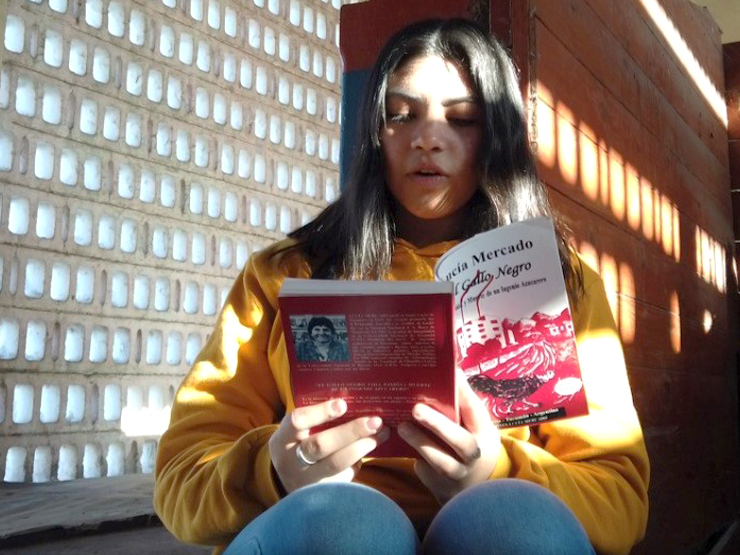Free school support is provided to children aged 10 to 17 from rural communities in spaces created within the framework of the Social Compliance System.
“During this week, the Youth Spot Center of Santa Lucía was inaugurated, an initiative we have from the private sector to support young people within the framework of the program to prevent unprotected child and adolescent labor,” said Francisco Estrada, president of the Association of Blueberry Producers of Tucumán, Salta, and Catamarca (Apratuc).
He added that they have been working with Youth Spots Centers for two years to comply with the social mandate they have as a sector. “The program is funded by the US Department of Labor and implemented by us, with the support of Desarrollo y Autogestion (DyA), a Latin American non-governmental organization,” he added.

The Youth Spot Center is the result of the joint effort of the governments of Santa Lucía and Sargento Moya, Apratuc producers, and the Argentine Blueberry Committee (ABC), along with DyA.
“As part of our Responsible Agricultural Production (PAR) Project, free of child labor, in May, we put two Youth Points into operation in Tucumán. These are free spaces that provide school support and digital connectivity to young people aged 12 to 17. They operate with teams of tutors, with assigned shifts and all safety and hygiene measures in the context of the coronavirus pandemic,” specified Estrada.
He added that each Youth Spot Centers strengthens services for adolescents and is part of the Social Compliance System promoted by PAR in the rural communities of Santa Lucía and Sargento Moya, with the aim of preventing child labor in the blueberry production chain.
“In the blueberry sector, we are working with the companies Early Crop, Extraberry, and King Berry, and during this year, we want to implement this system in the rest of the companies,” said the producer.
He added that Youth Point is another initiative for young people to learn various topics, with training and various tasks, occupying their time until parents return from work. “We do this with the permanent collaboration of the National Registry of Rural Workers and Employers (RENATRE), the municipalities, and the provincial government. We already did one for younger children in Sargento Moya, and the idea is that this year we will inaugurate a third one in León Rouges. We want to continue creating more Youth Points to build a support network,” he concluded.
Full article: https://www.lagaceta.com.ar/nota/898648/actualidad/con-punto-joven-arandano-combate-trabajo-infantil.html

